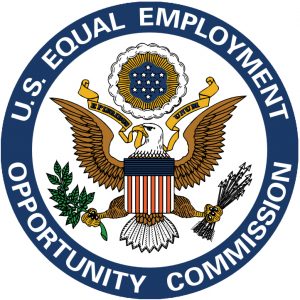 The Equal Employment Opportunity Commission (“EEOC”) recently released long-awaited guidance for employers who are considering mandates and incentives for COVID-19 vaccinations. The EEOC’s new guidance explicitly states that, under federal nondiscrimination law, employers are not prohibited from requiring COVID-19 vaccinations for their employees physically entering the workplace, as long as reasonable accommodations for disability, religion, and pregnancy and other laws are followed. Your analysis of how these standards apply to your situation should be conducted on an individualized basis with guidance from legal counsel.
The Equal Employment Opportunity Commission (“EEOC”) recently released long-awaited guidance for employers who are considering mandates and incentives for COVID-19 vaccinations. The EEOC’s new guidance explicitly states that, under federal nondiscrimination law, employers are not prohibited from requiring COVID-19 vaccinations for their employees physically entering the workplace, as long as reasonable accommodations for disability, religion, and pregnancy and other laws are followed. Your analysis of how these standards apply to your situation should be conducted on an individualized basis with guidance from legal counsel.
Can My Business Require COVID-19 Vaccinations For Employees?
As an initial matter, employers implementing a COVID-19 vaccination policy should include a notice that the employer will consider requests for reasonable accommodations on an individualized basis. Before implementing a vaccination policy, employers should also provide those responsible for implementing the policy with guidelines on how to respond to accommodation requests. Below are follow-up questions you may encounter as you consider implementing a COVID-19 vaccination policy in your workplace.
Employees Who Refuse Or Are Unable to Get The COVID-19 Vaccination Due To A Medical Disability
The Americans with Disabilities Act (“ADA”) allows an employer to implement standards for all employees that are job-related and consistent with business necessity. If an employee is unable to get vaccinated because of a disability, the employer should exempt this employee from the COVID-19 vaccination policy unless an unvaccinated individual would pose a direct threat that cannot be eliminated or reduced by a reasonable accommodation. Determining whether an unvaccinated individual poses a “direct threat” is an individualized assessment, made more complicated by the rapidly evolving guidance from the CDC.
Employees Who Refuse Or Are Unable To Get The COVID-19 Vaccination Because Of A Sincerely Held Religious Belief
Title VII of the Civil Rights Act of 1964 (“Title VII”) prohibits employers from discriminating based on sincerely held religious beliefs, practices, and observances. Sincerely held religious beliefs can include opposition to being vaccinated. Employees may request to be exempt from a COVID-19 vaccination requirement or to wait for a specific brand of the vaccination for religious reasons. Employers are required to reasonably accommodate religious practices unless the accommodation would create an undue hardship on the employer.
Employees Who Refuse Or Are Unable To Get The COVID-19 Vaccination Because Of Pregnancy
Accommodations for employees who do not get vaccinated because of pregnancy are determined in a slightly different way than accommodations for unvaccinated individuals due to disability or religion. Accommodations for pregnant employees depend on how other employees similar in their ability or inability to work are accommodated. Employees who are not vaccinated because of pregnancy should be exempted or accommodated to the extent that the employer makes modifications or exceptions for other employees similar in their ability or inability to work. Potential accommodations for unvaccinated pregnant employees include job modifications, schedule changes, telework options, and leave.
What Types Of Potential Reasonable Accommodations Should Be Considered?
If you have an employee who is unable to get vaccinated because of disability, religion, or pregnancy, the EEOC provides examples of reasonable accommodations for unvaccinated employees including: wearing a face mask in the workplace, social distancing from coworkers or non-employees, working a modified or staggered shift, getting periodic tests for COVID-19, and making changes in the work environment such as improving ventilation. The employer must also consider the feasibility of teleworking or reassignment to a vacant position.
The employer must offer an available accommodation if it would not pose an undue hardship to the employer. Employers must not retaliate against an employee for requesting an accommodation and should not disclose whether an employee is receiving an accommodation. Approval or denial of a request for a reasonable accommodation is a fact-intensive, case-by-case inquiry and should be carefully considered with legal counsel.
Even If I Don’t Require The COVID-19 Vaccination, May I Ask My Employees Whether They Have Received The COVID-19 Vaccine?
Yes. Generally speaking, employers are not precluded under federal law from asking their employees about their COVID-19 vaccination status. However, vaccination information, including documentation or other confirmation of vaccination, is medical information under the ADA and must be kept confidential and recorded separately from the employee’s personnel file. Additionally, any request about vaccination status should be limited in scope as there are legal restrictions under the Genetic Information Nondiscrimination Act (“GINA”). Accordingly, it is best to consult with legal counsel before requesting additional information related to COVID-19 vaccination status of employees or their family members.
Can I Incentivize My Employees to Get The COVID-19 Vaccination?
Given the legal complexities of vaccination exemptions and accommodations, many employers have opted instead to incentivize the COVID-19 vaccination.
Under the ADA, an employer can offer an incentive to employees who receive the COVID-19 vaccination from a pharmacy, public health department, or other care provider in their community and voluntarily provide documentation or other confirmation to their employer.
There are no limitations on incentives given to employees who voluntarily provide confirmation of vaccination from a third-party health care provider in the community.
Can My Business Or Its Agent Administer The COVID-19 Vaccination To Our Employees?
If the COVID-19 vaccination is administered by the employer or their agent, the incentive, reward, or penalty cannot be so substantial as to be coercive and the employer must also ensure that the pre-vaccination questions do not inquire about genetic information. Because COVID-19 vaccinations administered by employers or their agents are subject to additional provisions of equal opportunity employment laws, it is recommended that employers consult with legal counsel before implementing these plans.
Can an Employee Who Is Vaccinated Still Request An Accommodation For Being Immunocompromised?
Regardless of whether an employee is unvaccinated or vaccinated, an employer should engage in the ADA interactive process if an employee requests an accommodation.
For more information about COVID-19 vaccination policies, please contact us.
